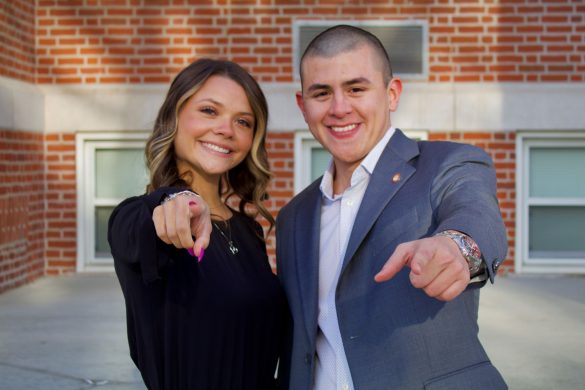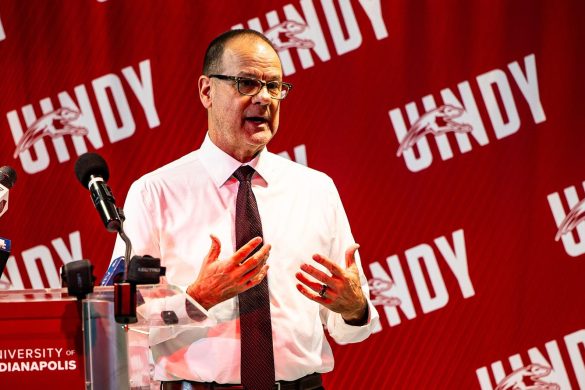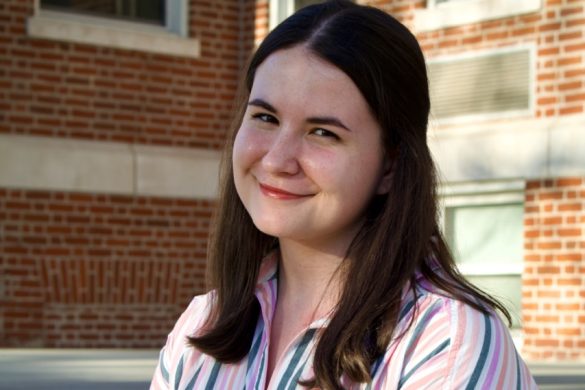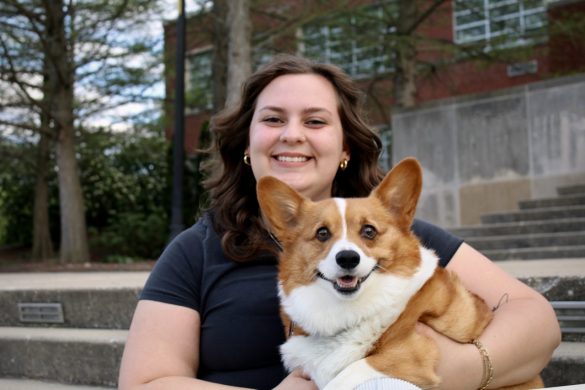Call me a pessimist, but I, for one, am not looking forward to the impending doom that is election season. When I turned 18, I thought to myself, “At last, I am able to vote!” Too bad the public’s access to candidates is limiting more and more in an increasingly polarized world, and the lines between facts and sensationalism are ever-blurring.
Political debates, in particular, are something I look toward for information on candidates’ platforms, especially as a newly of-age voter. I see debates as opportunities for me to gauge who really is up to the task of serving in a public office—regardless of which office it may be. However, in recent years, more and more public office candidates have opted to skip broadcasted debates—especially among GOP candidates, according to Dayton Daily News. Unfortunately for brand-new voters like me, and the greater public, political candidates opting out of public debates is detrimental to democracy. Not to mention it feels like I am watching reality television unfold most of the time rather than a professional debate.
Debates can “make or break” a candidate. For example, in the 2012 Republican primaries, candidate and former Governor of Texas Rick Perry stumbled during a response about which government agencies he wanted to abolish and, thus, his already declining poll numbers tanked, according to the Washington Examiner. Then Massachusetts Senator John F. Kennedy and Vice President Richard Nixon participated in the first nationally televised presidential debate in 1960. This had a part in Kennedy’s victory and changed the standards for a presidential campaign, according to the Department of History at Purdue University, as it allowed candidates to be asked questions relevant to their constituents—Which, obviously in presidential debates, is the entire U.S. population. Oh, and, I do remember watching then-President Barack Obama debating Mitt Romney for his second term in 2012 and thinking to myself, “Huh, I could vote for this guy,” at the wise age of ten.
This all is not to say that Democratic candidates have never opted to skip debates. In Arizona, for example, the Democratic gubernatorial candidate Katie Hobbs refused to participate in a public debate against Republican candidate Kari Lake in 2022. However, according to Dayton Daily News, scrutiny against the news media is a big proponent for why GOP candidates do not want to take the debate stage. Voters look to the media to give context to and aid in the public understanding of elections. But, sure, let’s add more limits to communication between the government and Americans—especially when we are deciding who is going to be in charge. Besides, was it not Thomas Jefferson who said, “Our liberty depends on the freedom of the press, and that cannot be limited without being lost?”
Even on the presidential debate stage, former U.S. President Donald Trump has not attended either of the 2024 Republican primary debates, much to his opponents’ disapproval, according to PBS. In fact, PBS reported that Trump called on the Republican National Committee to cancel all remaining Republican primary debates in order to focus their attention on defeating Democrat incumbent Joe Biden. While Trump, according to the New York Times, is currently the leading candidate for the GOP nomination, that does not excuse him from the election process—a lesson I thought he learned in 2020.
I am of the belief that all candidates, no matter their poll numbers or current office, should attend and participate in public debates. According to PBS, a spokesman for Florida Governor and Presidential Candidate Ron DeSantis said the U.S. “needs a president who will fight for them anywhere, in any forum.” That much I can agree with. Skewed or not, candidates have a duty to the American people and should take any questions asked in bad faith like water off a duck’s back. If anything, it is an opportunity for candidates to push past those narratives and set the record straight—Let the people decide. The free and public consumption of information is imperative to the upholding of democracy, and thus the skipping or elimination of debates is undemocratic. I guess I will just have to “follow the money,” so to speak, to see a candidate’s way of thinking instead—That is, if debates are off the table, as organizations like OpenSecrets have publicly accessible campaign donation records for each candidate.Debates give “We the People” a way to see candidates answer the same or similar questions that are relevant to issues we Americans face, which is most important. Since 1960, debates—especially presidential debates—have been the standard, and that is for good reason. What happens to democracies when candidates are now allowed to simply opt out of a challenging landscape? What happens when voters are kept in the dark? The answer is simple, as renowned journalist Bob Woodward said, “Democracies Die in Darkness.”








